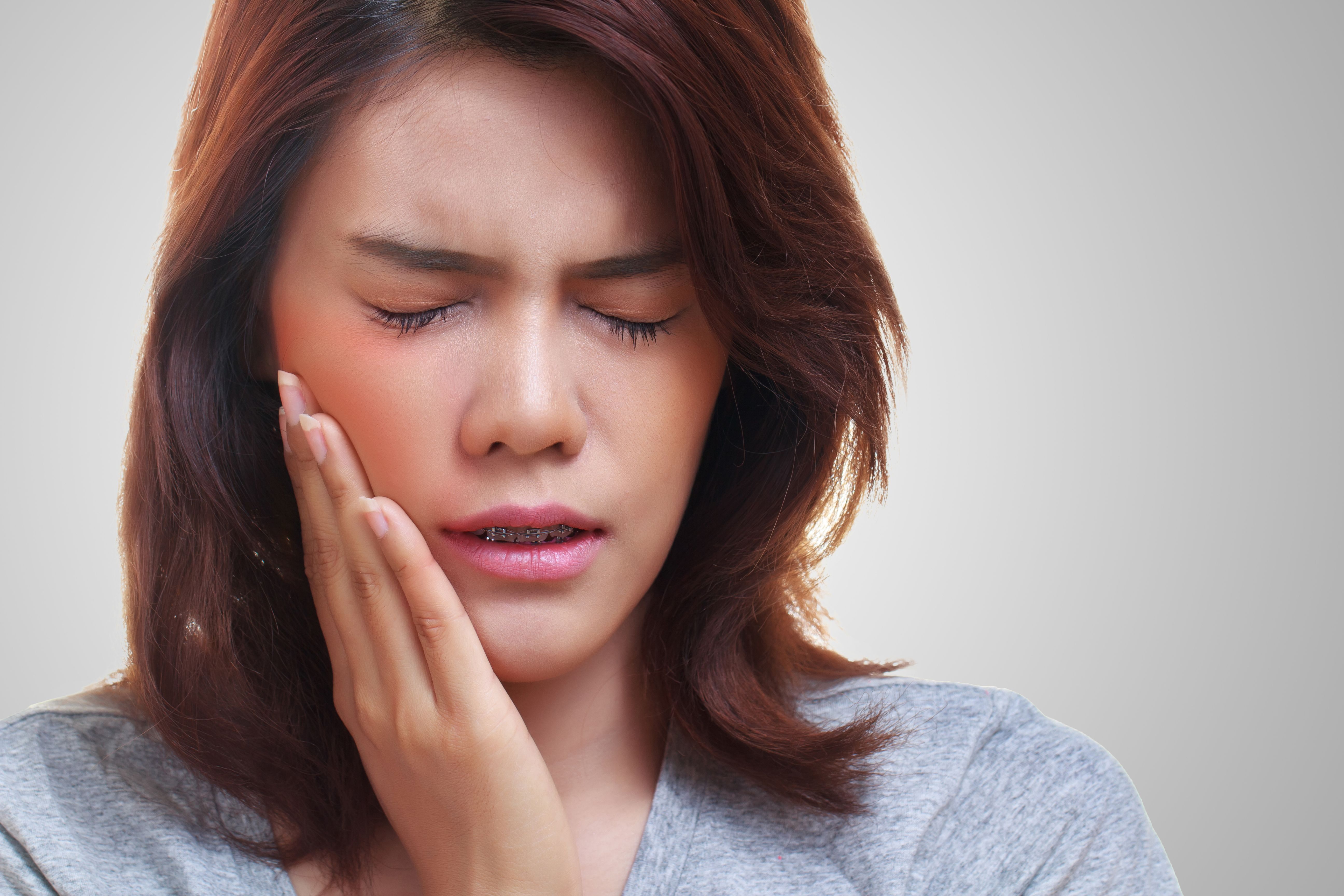Tooth Sensitivity after Dental Fillings and Crowns
 Tooth sensitivity or pain can be extremely uncomfortable, and it can even make eating and other daily functions difficult. When tooth sensitivity occurs in a tooth in which a dental filling or crown was recently placed, it can be both concerning and frustrating to patients. Patients expect restorative dental treatments to eliminate pain, not to cause it. At Chrisman & Wyse, we certainly understand these feelings. However, it is normal for patients to experience sensitivity in the days following their restorative dentistry treatment. In this blog post, Dr. Jay W. Chrisman and Dr. David D. Wyse explain why patients may experience some discomfort after treatment, and how any sensitivity can be reduced. To learn more about tooth sensitivity after dental fillings and crowns, contact our Bloomington, IL practice today.
Tooth sensitivity or pain can be extremely uncomfortable, and it can even make eating and other daily functions difficult. When tooth sensitivity occurs in a tooth in which a dental filling or crown was recently placed, it can be both concerning and frustrating to patients. Patients expect restorative dental treatments to eliminate pain, not to cause it. At Chrisman & Wyse, we certainly understand these feelings. However, it is normal for patients to experience sensitivity in the days following their restorative dentistry treatment. In this blog post, Dr. Jay W. Chrisman and Dr. David D. Wyse explain why patients may experience some discomfort after treatment, and how any sensitivity can be reduced. To learn more about tooth sensitivity after dental fillings and crowns, contact our Bloomington, IL practice today.
The Causes of Tooth Sensitivity after Fillings and Crowns
In most cases, tooth sensitivity occurs as a result of the pressure and work that was done to the tooth. When a patient undergoes dental filling or crown treatment, our dentists use a dental drill to remove the decayed or diseased portion of the tooth. Patients do not experience any discomfort during the actual dental procedure because of the numbing medication. However, as the local anesthetic wears off, patients may feel the effects of the pressure that was applied to the tooth. In most cases, discomfort is caused when a patient is biting down or chewing food, as these actions apply further stress to the teeth.
If tooth sensitivity does not go away within a few days of treatment, there may be some cause for concern. If this occurs, we encourage you to schedule a follow up appointment so we can check your bite and look for signs of any other problems. In most cases, a simple bite adjustment is all that is needed to relieve sensitivity and restore oral comfort.
How to Reduce Tooth Sensitivity
There are steps you can take in the days after filling and crown treatment to reduce tooth sensitivity.
- Eat soft foods: Since most tooth sensitivity occurs when eating, we recommend that you eat soft foods in the days following treatment. Foods such as yogurt, pasta, mashed potatoes, and soup are easy to eat and don’t put pressure on your teeth.
- Chew on the other side of your mouth: If the filling or crown treatment was performed on one side of your mouth, try eating foods on the other side of your mouth.
- Avoid clenching or grinding the teeth: Try to avoid clenching or grinding your teeth. If this is an unconscious habit, talk to our dentists about getting a custom mouth guard.
- Take an over-the-counter pain medication: An over-the counter pain medication, such as ibuprofen or Tylenol, can be used as directed on the bottle to reduce pain. Alternatively, you may want to try one of the oral numbing gels that can be purchased in drugstores.
If you are experiencing prolonged tooth sensitivity after filling or crown treatment, schedule a dental appointment so we can determine the cause of your tooth pain. Contact Chrisman & Wyse today.




